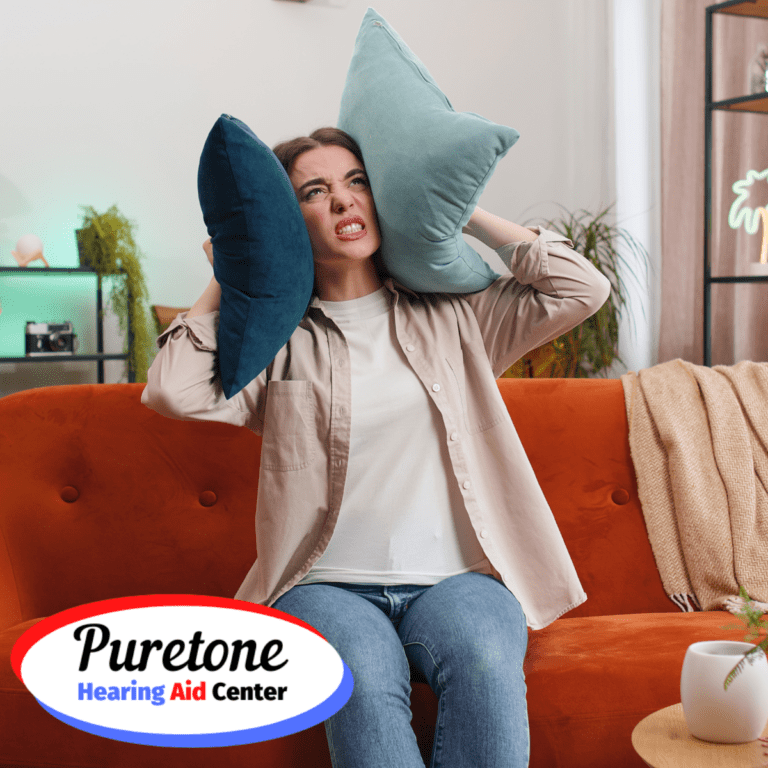Sound sensitivity and hyperacusis are conditions that can greatly impact one’s quality of life. It is important to understand these conditions in order to find appropriate solutions and support. In this article, we will explore the causes, symptoms, diagnosis, treatment options, coping strategies, and long-term outlook for sound sensitivity and hyperacusis.
Causes of Sound Sensitivity and Hyperacusis
Sound sensitivity and hyperacusis can be caused by various factors. One common cause is sensory processing disorder, where the brain has difficulty processing and filtering sensory information. Additionally, exposure to loud noises can lead to noise-induced hearing loss, which can result in increased sensitivity to sound. Head injuries or trauma can also contribute to sound sensitivity. Certain medical conditions or medications may also play a role in developing these conditions.
Symptoms and Impact on Daily Life
Individuals with sound sensitivity and hyperacusis experience heightened sensitivity to everyday sounds. Sounds that may be tolerable to others can be highly uncomfortable or overwhelming for them. This heightened sensitivity can also lead to physical and emotional symptoms such as anxiety, irritability, headaches, and fatigue. In social and occupational settings, individuals with sound sensitivity and hyperacusis may face challenges and limitations in their daily lives.
Diagnosis and Evaluation
If you suspect that you or a loved one may be experiencing sound sensitivity or hyperacusis, it is important to seek professional help from an audiologist or hearing care specialist. They will conduct a comprehensive audiological evaluation to assess your hearing and measure your sensitivity to different sound levels. They may also use questionnaires and self-assessment tools to better understand your symptoms and their impact on your daily life.
Treatment Options
Fortunately, there are several treatment options available for managing sound sensitivity and hyperacusis. One common approach is sound therapy, which involves gradually exposing individuals to low-level background noises to desensitize them. Counseling and cognitive-behavioral therapy can also be beneficial in helping individuals cope with their reactions and emotions related to sound sensitivity. In some cases, hearing aids or other assistive devices may be recommended to improve sound tolerance and enhance communication. Medications and medical interventions may also be considered in more severe cases.
Coping Strategies and Lifestyle Modifications
In addition to formal treatments, there are various coping strategies and lifestyle modifications that can help individuals manage their sound sensitivity and hyperacusis. Noise management techniques, such as using earplugs or noise-canceling headphones, can provide relief in noisy environments. Stress reduction and relaxation techniques, such as deep breathing exercises or mindfulness meditation, can help individuals better manage their emotional response to sound triggers. Communication strategies, such as advocating for quiet spaces or using visual cues to signal discomfort, can also improve social interactions. Additionally, seeking support from support groups and utilizing online resources can provide individuals with valuable insights and encouragement.
Prognosis and Long-Term Outlook
The prognosis and long-term outlook for individuals with sound sensitivity and hyperacusis can vary. Early intervention and treatment are important in managing these conditions effectively. It is essential to remember that each person is unique, and their response to treatment may differ. Some individuals may experience significant improvements in their sound tolerance and quality of life, while others may require ongoing management strategies. By making lifestyle adjustments and utilizing appropriate resources, individuals with sound sensitivity and hyperacusis can lead fulfilling lives.
Understanding sound sensitivity and hyperacusis is crucial for individuals experiencing these conditions. Seeking professional help and support is the first step towards finding appropriate treatment options. It is important to remember that there are various strategies, therapies, and resources available to manage sound sensitivity and hyperacusis. By taking control of your condition and implementing coping mechanisms, you can improve your sound tolerance and reclaim your quality of life. Do not hesitate to give us a call or CLICK HERE to make an appointment. Together, we can empower individuals with sound sensitivity and hyperacusis to live life to the fullest.



